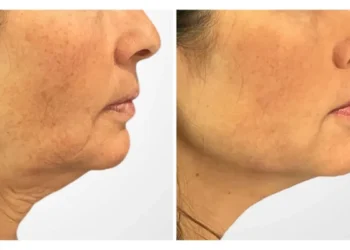Today at media news fire we are writing bout Hair conditioner. I am sharing about my research and personal experience. lets start.
The conditioner plays a vital role in any effective hair care routine. While shampoo cleanses the scalp and removes dirt and oil, conditioner is responsible for nourishing, moisturizing, and protecting the hair. The best hair conditioner is one that matches your hair type and addresses your specific needs—whether that’s dryness, frizz, damage, or lack of shine.
This article explains what makes a conditioner effective, how to choose the right one for your hair type, and how to get the most out of its use.
What Does Conditioner Do?
Conditioner is designed to improve the texture, appearance, and manageability of hair. It works by:
Hydrating the hair shaft after shampooing
Sealing the cuticle layer, which helps reduce frizz and adds shine
Making hair smoother and easier to detangle
Protecting against damage from heat styling, sun exposure, and pollution
Reducing split ends and breakage
Without conditioner, hair can become dry, brittle, and more prone to damage over time.
What Makes the Best Hair Conditioner?
The best hair conditioner is not a one-size-fits-all product. It depends on several factors such as hair texture, scalp condition, climate, and styling habits. However, a few characteristics define a high-quality conditioner:
1. Moisturizing Power
A good conditioner replenishes moisture lost during washing. Ingredients that attract and hold moisture, like glycerin, aloe vera, or panthenol, help keep hair hydrated.
2. Protein Content
For damaged or weak hair, protein-rich conditioners help strengthen the hair shaft. These proteins fill in gaps along the hair cuticle, reinforcing structure and reducing breakage.
3. Scalp Health
The best conditioner supports both hair and scalp. Look for soothing, non-irritating ingredients that maintain the natural pH balance of the scalp.
4. Detangling Ability
A quality conditioner smooths the hair cuticle, making it easier to comb through and reducing the risk of mechanical damage from brushing.
5. Free From Harmful Chemicals
A good conditioner avoids harsh ingredients like sulfates, parabens, and alcohols that can strip or dry out hair. For sensitive scalps or chemically treated hair, gentle formulas are essential.
Choosing the Right Conditioner for Your Hair Type
Different hair types require different formulations. Here’s how to choose the best conditioner based on your specific hair needs:
● Dry or Damaged Hair
Opt for a deep moisturizing conditioner that includes rich, nourishing ingredients like natural oils, shea butter, or honey. These ingredients help restore elasticity and reduce brittleness.
● Oily or Fine Hair
Choose a lightweight conditioner that hydrates without weighing hair down. Avoid heavy creams and opt for formulations that focus on volume and root lift.
● Curly or Coily Hair
Curly hair tends to be drier due to its texture, so it benefits from intensive hydration. A thick, emollient-rich conditioner helps define curls and reduce frizz.
● Color-Treated or Chemically Treated Hair
Color-treated hair is more porous and prone to dryness. Use a conditioner that helps retain moisture and protects against fading. Look for pH-balanced formulas that seal the cuticle and prevent color washout.
● Normal Hair
If you have no major hair issues, a daily-use conditioner with balanced moisture and a light texture can help maintain shine, smoothness, and strength.
Types of Conditioners
There are various types of conditioners, each designed for a specific purpose:
▸ Rinse-Out Conditioner
This is the most common type used after shampooing. It’s applied to the mid-lengths and ends, left for a few minutes, and then rinsed out. It offers basic moisture and smoothness.
▸ Leave-In Conditioner
This is applied to damp hair and left in without rinsing. It adds long-lasting hydration, helps detangle hair, and protects against environmental damage.
▸ Deep Conditioner or Hair Mask
These are intensive treatments used once a week to restore moisture and repair damage. They penetrate deeper into the hair shaft and are ideal for dry, damaged, or processed hair.
▸ Co-Wash Conditioner
Short for “conditioner-only washing,” this is a cleansing conditioner used in place of shampoo, especially for curly or dry hair types that need gentle cleansing.
How to Use Conditioner Effectively
Using conditioner correctly is just as important as choosing the right one:
Start with clean hair. Shampoo first to remove oil and buildup.
Apply from mid-lengths to ends. Avoid the scalp unless it’s a moisturizing or scalp-specific product.
Use the right amount. Overusing can weigh down hair, while underusing won’t provide enough moisture.
Leave it on. Give it time—usually 2–5 minutes—to absorb and work its magic.
Rinse with cool water. This helps close the hair cuticle, locking in moisture and adding shine.
Conclusion
The best hair conditioner is the one that meets your hair’s individual needs. It should nourish, protect, and improve the manageability of your hair without causing buildup or irritation. Whether your hair is dry, oily, curly, fine, or chemically treated, there is a conditioner out there that can enhance its health and beauty.
By understanding your hair type and choosing the right product, you can transform dull, damaged, or unruly hair into soft, strong, and radiant locks. Conditioner isn’t just an optional step—it’s a key element in maintaining a healthy, balanced hair care routine.






